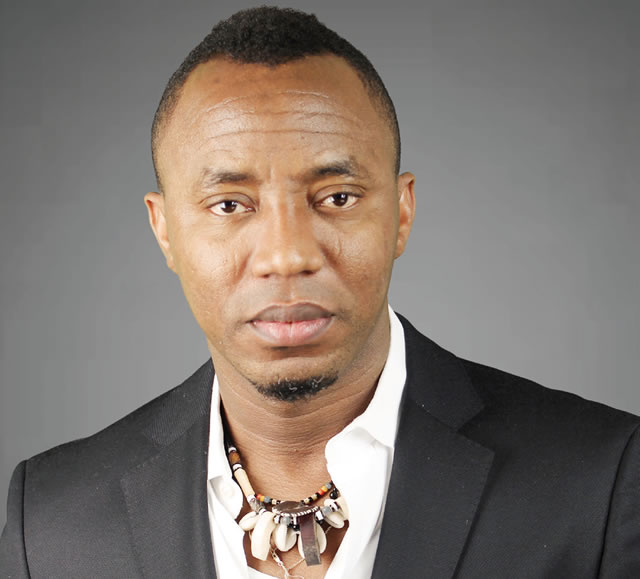Omoyele Sowore, a prominent human rights activist and former presidential candidate under the banner of the African Action Congress (AAC), has launched a scathing critique of Nigeria’s political landscape, alleging that the nation’s opposition parties, with the sole exception of his own AAC, are effectively operating under the influence and control of the ruling All Progressives Congress (APC). Sowore contends that these parties are not genuine contenders for power but rather strategically crafted entities designed to serve the APC’s political interests. He characterizes them as “feeder parties” or “special-purpose vehicles,” implying their existence is primarily to bolster the APC’s dominance and manipulate the electoral process.
Sowore’s central argument revolves around the notion that these alleged pseudo-opposition parties are often financially supported by the APC, particularly during election cycles. This funding, he claims, is used to achieve specific political objectives, such as initiating legal challenges against election results. These challenges, according to Sowore, are not pursued in earnest but rather serve as bargaining chips in post-election negotiations. The scenario he paints depicts a system where these parties file lawsuits, subsequently withdraw them after reaching settlements with the APC, and effectively “get paid and walk away.” This orchestrated process, Sowore argues, undermines the integrity of the electoral system and reinforces the APC’s grip on power.
Further solidifying his accusations, Sowore points to the behavior of these opposition parties during meetings with the Independent National Electoral Commission (INEC). He observes that these parties often fail to exhibit any genuine opposition to the APC’s policies or actions, appearing instead to be ideologically aligned with the ruling party. This lack of meaningful dissent, in Sowore’s view, further exposes their complicity and reinforces his belief that they are not truly independent entities vying for power. Their actions within the formal setting of INEC meetings, he suggests, betray their true allegiance and expose the charade of a competitive political landscape.
Expanding his critique beyond the lesser-known parties, Sowore directly targets even prominent opposition forces like the Peoples Democratic Party (PDP) and, most pointedly, the Labour Party (LP). He reserves his harshest criticism for the LP, labeling it “the worst” offender. He claims that many LP members have defected back to the APC after securing positions of power, suggesting their initial affiliation with the LP was purely opportunistic. Sowore uses the term “short rental” to describe the LP, portraying it as a temporary vehicle for ambitious politicians seeking to gain access to power and resources, with no genuine commitment to the party’s ideals or its purported oppositional stance.
Sowore’s characterization of the Labour Party as a “short rental” reflects his broader critique of the Nigerian political system. He argues that many politicians are driven by self-interest rather than genuine ideological convictions. This opportunism, he suggests, leads them to shift allegiances based on political expediency, undermining the credibility of party affiliations and the integrity of the electoral process. The defections of LP members back to the APC, in Sowore’s view, serve as prime examples of this phenomenon, reinforcing his skepticism about the authenticity of many opposition parties.
In summary, Omoyele Sowore’s assertions paint a picture of a Nigerian political landscape where the lines between ruling and opposition parties are blurred. He argues that most opposition parties, regardless of their size or prominence, are either directly created by the APC or co-opted into serving its interests. This alleged manipulation, according to Sowore, takes various forms, including financial inducements, orchestrated legal challenges, and a general lack of genuine opposition to the APC’s agenda. This system, he argues, allows the APC to maintain its dominance while creating the illusion of a competitive political environment. Sowore’s accusations raise serious questions about the integrity of Nigeria’s political system and the authenticity of its democratic processes, particularly concerning the role and effectiveness of opposition parties.


